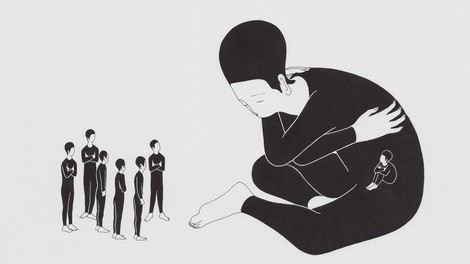Your podcast discovery platform
Curious minds select the most fascinating podcasts from around the world. Discover hand-piqd audio recommendations on your favorite topics.

piqer for: Global finds Health and Sanity Doing Good
Bangalore-based Rashmi Vasudeva's journalism has appeared in many Indian and international publications over the past decade. A features writer with over nine years of experience heading a health and fitness supplement in a mainstream Indian newspaper, her niche areas include health, wellness, fitness, food, nutrition and Indian classical Arts.
Her articles have appeared in various publications including Mint-Wall Street Journal, The Hindu, Deccan Herald (mainstream South Indian newspaper), Smart Life (Health magazine from the Malayala Manorama Group of publications), YourStory (India's media technology platform for entrepreneurs), Avantika (a noir arts and theatre magazine), ZDF (a German public broadcasting company) and others.
In 2006, she was awarded the British Print-Chevening scholarship to pursue a short-term course in new-age journalism at the University of Westminster, U.K. With a double Masters in Globalisation and Media Studies from Aarhus Universitet (Denmark), University of Amsterdam and Swansea University in Wales, U.K., she has also dabbled in academics, travel writing and socio-cultural studies. Mother to a frisky toddler, she hums 'wheels on the bus' while working and keeps a beady eye on the aforementioned toddler's antics.
Throwing Light On The Dark Cavern Beyond Those Cute Shoes On Facebook
This is a cautionary, nerve-racking, personal narrative written by a fearless woman who knows how to expertly weave her feelings into words. A rare peek into post-partum psychosis, a subject often mired in shame, mistrust and social judgement. She dives into her "poorly brain" and gives us a frightening glimpse of how a sick brain struggles to “maintain” personality by “coughing up delusions and hallucinations”.
Post-partum depression is viewed in the public domain with the same blurred lens that is used to look at women who are not interested in giving birth. The stigma and the imposition of guilt is astounding. Which is why often treatable post-partum depression chafes, festers and quickly boils over into the more challenging post-partum psychosis.
Though more common in women who have bipolar disorder, post-partum psychosis can also affect women who have no history of mental illness whatsoever. What most caregivers (and the women themselves) don't grasp is that it is a "psychiatric emergency" that needs to be treated urgently, failing which it can easily lead the sufferer to attempt suicide, or worse, cause harm to the baby. Thanks to the misconceptions, both cultural and social, associated with motherhood, most don't seek help — sometimes even believing that their symptoms are normal.
It took the author herself several bouts of paranoia that her baby had been swapped and rapid mood swings from hyperactivity to profound anxiety to eventually seek help. She goes on to narrate how a combination of family time, professional care, medication and, surprisingly enough, storytelling, helped her recover.
Like the author says, it is time for women to shout about maternal mental health. And when others speak out, perhaps more women will realize that it is nothing to feel ashamed of or be guilty about. New motherhood is not just about cute shoes and gurgling babies on Facebook; as she puts it, there might be “a lot of sadness hidden behind that impenetrable wall of smiles”.
